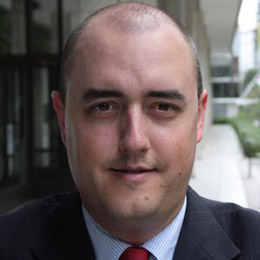
Andrea Limbago
With less focus on diplomatic substance and more on diplomatic theater, the summit between United States President Donald Trump and North Korean President Kim Jong Un amounted to a missed opportunity, a George Mason University visiting fellow said.
“It is a return to the status quo that existed even before the recent rhetoric, as there are distinct similarities with previous agreements,” said Andrea Limbago, a visiting fellow at George Mason University’s National Security Institute (NSI) in the Antonin Scalia Law School. “However, in contrast to previous discussions, the details of denuclearization are now even more vague and ill-defined, so it is unclear if North Korea made any concessions at all.”
The widely reported deal, part of what the New York Times described as “a momentous step in an improbable courtship between the world’s largest nuclear power and most reclusive one,” includes Trump suspending joint military exercises with South Korea.

Jamie Fly
Trump said North Korea would begin dismantling its nuclear arsenal “very quickly,” but there was no timetable or verification measures. Trump said sanctions against North Korea would stay in place until the country took concrete steps to fulfill its pledge.
“But based on previous behavior,” Limbago said, “North Korean promises, even vague ones, must be taken with a grain of salt. Whether this summit proves to be the anomaly as opposed to a continuation of decades of unfulfilled promises remains to be seen.”
In fact, said NSI visiting fellow Jamie Fly, “There appears to be little in the summit statement that has not been said before. In some cases, the pledges appear to be weaker than those in the past. Unilateral U.S. concessions for more of the same from Kim Jong Un is not a change from the past, it is repeating the mistakes of the past. If American security interests are to be achieved in the long run, fundamental change will have to happen in North Korea.”

Andrew Borene
While the summit between the two leaders seems to represent a thaw in relations between the two countries, the long view of substance over style must be taken, said NSI visiting fellow Andrew Borene, a former associate deputy general counsel in the U.S. Department of Defense.
“After the fanfare of this week in Singapore has subsided, the hard work will be in the follow-up next year,” he said, “through access, verification and inspection processes in order to ensure that North Korea honestly follows through with any agreements.”
For more information, contact the National Security Institute at 703-993-5620 or Damian Cristodero at 703-993-9118 or dcristod@gmu.edu.
About George Mason
George Mason University is Virginia’s largest public research university. Located near Washington, D.C., Mason enrolls more than 36,000 students from 130 countries and all 50 states and Washington, D.C. Mason has grown rapidly over the past half-century and is recognized for its innovation and entrepreneurship, remarkable diversity and commitment to accessibility.
